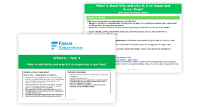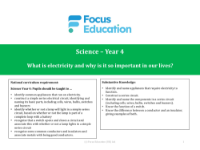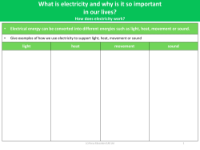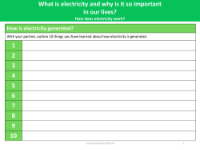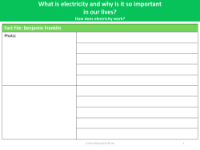How does electricity work? - Teacher notes
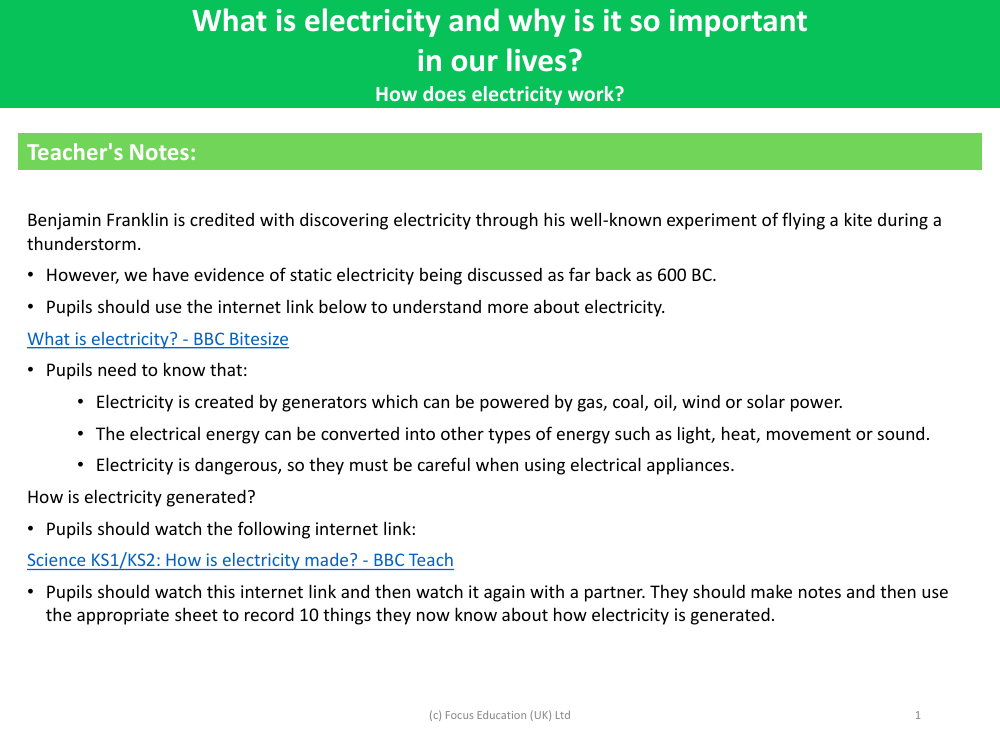
Science Resource Description
Electricity is a fundamental part of our everyday lives, powering everything from household appliances to streetlights and computers. The concept of electricity dates back to ancient times, with discussions of static electricity recorded as early as 600 BC. Nevertheless, it was Benjamin Franklin's iconic kite experiment during a thunderstorm that is often credited with the discovery of electricity. Teachers educating pupils about electricity can refer to resources like BBC Bitesize to provide a comprehensive understanding of this vital energy form.
Students learning about electricity should be aware of its generation through various means. Generators, which can be powered by a range of sources including gas, coal, oil, wind, and solar power, create electricity. This electrical energy is versatile, capable of being transformed into light, heat, movement, or sound. It's also important to highlight the dangers associated with electricity to ensure pupils handle electrical appliances safely. To deepen their understanding, students are encouraged to engage with educational content such as the BBC Teach video on electricity generation. By watching and discussing the material with a partner, and making notes, they can record key points about how electricity is generated and its significance in our daily lives.
